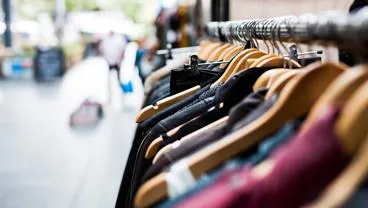24 April 2018
Rana Plaza: 5 years on
More than 1,100 people died on 24 April 2013 after the collapse of the Rana Plaza textile factory in Bangladesh, where clothes were made for international brands like Primark, Benetton and Mango. It was the latest disaster in a series of fatal factory fires and collapses in which hundreds of garment workers in Bangladesh were killed, despite many being checked against international accountability standards.

More than 1,100 people died on 24 April 2013 after the collapse of the Rana Plaza textile factory in Bangladesh, where clothes were made for international brands like Primark, Benetton and Mango. It was the latest disaster in a series of fatal factory fires and collapses in which hundreds of garment workers in Bangladesh were killed, despite many being checked against international accountability standards.
After the disaster, Professor Juliane Reinecke, Professor of International Management and Sustainability at King’s Business School conducted field research in Bangladesh to examine how the textile industry responded to the disaster by speaking to union representatives, activists, managers of major brands that source their goods from Bangladesh's factories, and factory managers themselves. Her research showed that past business practices based on social audits of factories against voluntary standards and codes of conduct failed to deliver protection for labour rights in global supply chains. Often, these initiatives failed to include workers themselves into the governance and implementation. The collapse of Rana Plaza was a turning point: it inspired (1) industry-wide collective action and (2) transnational industrial democracy in terms of worker representatives being more actively involved, making workplaces significantly safer.
Much of this industry-wide collective action was enabled by the creation of a social partnership-type arrangement to address these institutional failures; the Bangladesh Accord for Building and Fire Safety (The Accord; http://bangladeshaccord.org). In the immediate aftermath of the Rana Plaza building collapse, Global Union Federations -IndustriALL Global Union and UNI Global Union -as well as the labour rights NGOs Clean Clothes Campaign and Workers Rights Consortium were able to pressure a critical mass of brands into signing up to this five-year, legally binding agreement between brands and unions; unprecedented in global supply chain governance. The result was that over 200 brands have committed to collaborating with worker representatives to make workplaces safe.
In addition, the aftermath of Rana Plaza shows hope for developing the industry towards a new framework grounded in transnational industrial democracy. Much more emphasis has been placed on involving workers and their representatives in Health & Safety of their workplaces, and their rights more generally. At the governance level, the Accord’s steering committee consists of equal representation of trade union and company representatives. At the factory level, it supports the establishment of democratically elected health and safety committees in all covered factories.
Whilst Bangladesh's textile factories have become safer since the catastrophe in 2013, some significant issues remain. The underlying business model has not changed as a result of the changes that took place since, says Juliane Reinecke. ‘Wages and other labour standards are not covered by the Accord. The wages that are paid do not give people a dignified existence.’
Some companies have relocated their production from Bangladesh to Europe after the collapse of Rana Plaza. Even producing in Europe does not necessarily guarantee adequate labour standards and conditions. The NGO, Clean Clothes, has calculated that textile workers in Romania and Bulgaria earn only 18 percent of what is considered a living wage.
Producing mass-produced goods as cheaply as possible cannot be socially or ecologically sustainable, according to Professor Reinecke. ‘As consumers, we need to think about how to change our own consumer behaviour if we want to buy sustainable goods.’
Professor Reinecke is co-organising a conference in Berlin, alongside Freie Universitat Berlin’s School of Business and Economics in April, to look back at the Rana Plaza disaster and the consequences for labour standards improvements in garment supply chains.
Listen to the full talk on Soundcloud.
For more information, please contact business@kcl.ac.uk.

